The Long March Home tells the story of three generations of women. Agnes, a young Canadian goes to China as a missionary, and falls in love with a Chinese medical student. Growing anti-western sentence forces her to return home to Nova Scotia, where she discovers she is pregnant. Meihua, their American-born daughter, travels to China in search of the father she never met and winds up marrying a Chinese man, but the Cultural Revolution tears their lives apart. With both parents imprisoned, it falls to the family’s illiterate servant, Yao, to shield their daughter, Yezi, and her brother, from family tragedy, poverty and political discrimination, negotiating their survival during the revolution that she barely understands. Only after her mother is released, does Yezi, learn about her foreign grandmother, Agnes. Curious about her ancestry, Yezi travels to the U.S. to meet Agnes and learn about her life in China with the man her mother still longs to find.

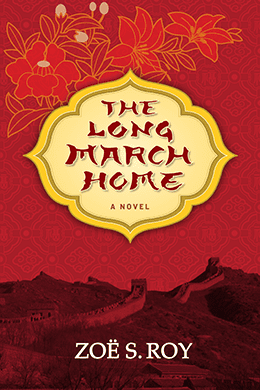
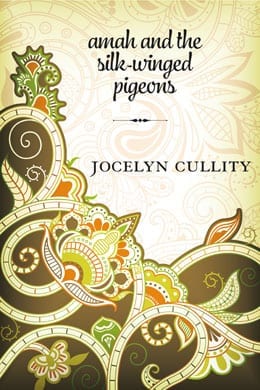
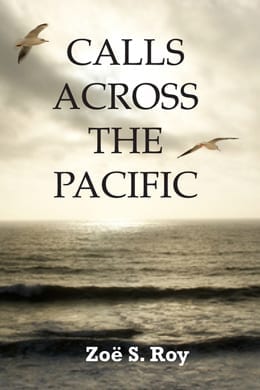
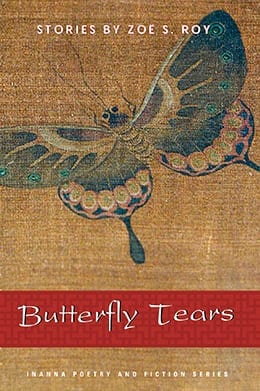
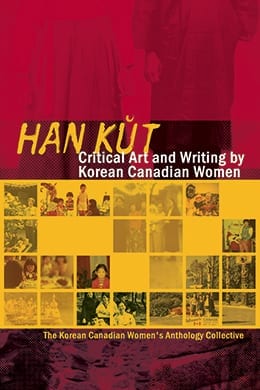
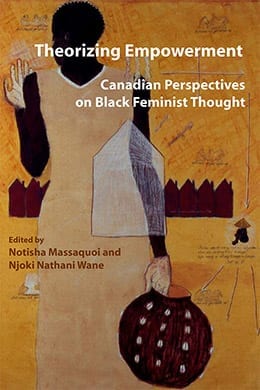

InannaWebmaster –
Canadian Bookworm – Jan. 2, 2012
<http://cdnbookworm.blogspot.com/2012/01/long-march-home.html>
“This book follows Meihua, a young mother in China and her daughter Yezi.… I found the parts in China compelling and interesting as well as Yezi’s experience when she came to see her grandmother.”
InannaWebmaster –
Asian Review of Books – March 13, 2012
reviewed by Melanie Ho
http://www.asianreviewofbooks.com/new/?ID=1268#
Review highlights:
“Early in The Long March Home, Meihua Wei is pushed on stage for a public accusation. The crowd shouts and accuses her of hiding her birth name—Mayflora Willard. It is 1967, and half-American, half-Chinese Meihua is sent to prison for 13 years, leaving behind her husband, himself in a labour camp, and her children, including a baby girl named Yezi.
The Long March Home, the first novel (following a collection of short stories) from Chinese-Canadian author Zoё S. Roy, is a multi-generational saga exploring one family’s life during and after the Cultural Revolution. Roy tells the story through the eyes of the three women in the family: Meihua (whose name is a combination of America—mei—and China—hua),Yezi and Meihua’s Canadian mother Agnes. After Meihua is sent to prison, Yezi and her brother are raised by the family’s proletarian cook and housekeeper Yao, until Meihua is released. It is then that Yezi learns about the existence of her grandmother a continent away and the three are united.
Roy dedicates her book to all those who suffered during the Cultural Revolution. Her perspective on the matter is made clear in her formal bio, where she describes herself as having been “an eyewitness to the red terror under Mao’s regime” [emphasis mine]. The Cultural Revolution is no longer a taboo subject among Chinese novelists, some of the most distinguished having turned their hands to it, nor is the multi-generation female saga an uncommon form. Roy has set her herself a considerable challenge in attempting to do both.
There are several aspects of The Long March Home that commend it: the strong female characters, the fact it features a white women in a relationship with a Chinese male rather it’s now rather cliché inverse or the extended treatment of day-to-day activities, such as a storyline involving Yezi’s silkworms. In spanning three generations and as many decades in just 300 pages, Roy achieves a balance between the larger difficulties of the family’s situation and the smaller delights of their day-to-day activities.…
The Long March Home certainly serves as a first fictional introduction to the Cultural Revolution and its legacy.…”
Melanie Ho is a writer who has reviewed for publications in Hong Kong and Canada.
InannaWebmaster –
Ginger Post: An Online Asian Magazine – July 10, 2012
Reviewed by David Lam
“Journey of the Heart”
<http://gingerpost.com/?p=1928>
“Launched 46 years ago, Mao Zedong’s destructive Cultural Revolution ripped apart the social fabric of China, splintered families and fractured lives. The current Chinese government’s policy of smoothing a revisionist’s plane over the excesses of an era of terror is a blatant exercise in disinformation. As long as there are novels such as The Long March Home by Chinese-Canadian author Zoё S. Roy, the efforts of China’s propaganda ministry will be hard pressed make their case convincingly.
The Long March Home is a multi-generational narrative depicting one family’s life during and after the Cultural Revolution. It interweaves the story of three women, art teacher and American-born Meihua, her daughter Yezi and her Canadian grandmother, Agnes.
Viewed by Communist Party officials as a subversive because of her mixed heritage, Meihua is sent to prison when the Cultural Revolution sweeps the country. Her son Sang and Yezi are left to be raised by the family cook, an illiterate who remains dedicated to his charges in the face of turmoil and chaos. Yezi’s childhood is filled with disorder and a relentless bedlam without benefit of the stabilizing influence of family. When Meihua is released after years of incarceration, Yezi learns she has a grandmother. Mother and daughter bond in a quest to seek reunion, a completion of the trinity of generations.
Roy, herself survivor of the Cultural Revolution, writes in a simple, eloquent and evocative style. She depicts strong, resilient women who are pushed to the limits of human endurance and yet manage to hold tight to their dignity and integrity in a world that belittles those efforts. Fiction is the truth inside the lie, said writer Stephen King. In Roy’s fiction, the truth resonates with the clarity of a golden bell struck with the mallet of first-hand experience.”
InannaWebmaster –
The Coast – July 2012
Reviewed by Chris Benjamin
<http://www.thecoast.ca/halifax/the-long-march-home/Content?oid=3218385>
“Roy begins her tale just before the birth of its protagonist, Yezi, during the Cultural Revolution in Mao’s China. From the opening page Roy establishes the omnipresent fear of tyranny, which permeates life’s every decision, be it minor (what to wear) or major (whether to keep a child, and what to name it). Step wrong and be judged harshly. Even children shout each other down in educational exercises. Yezi finds a child’s pleasures, like raising silkworms with a friend, even as her mother is imprisoned and her father works in a forced-labour camp. Roy contextualizes and links the characters’ limited perspective to the broader world, especially America, through family histories and politics. She does so without over-explaining, and subtly shows Yezi’s eventual shock and adjustment to Western culture. At times the story drifts, coming across as a series of anecdotes. But ultimately Roy connects an uncertain beginning to a satisfying end.”
InannaWebmaster –
Cozy Little Book Journal
http://www.cozylittlebookjournal.com/2012/11/the-long-march-home-by-zoe-s-roy.html
Review highlights:
“With her stunning debut novel, Zoe S. Roy has proven herself a powerful voice in Canadian fiction. Spanning from China to Boston to Halifax over many decades, The Long March Home is the story of one family’s experience through Chairman Mao’s Cultural Revolution and their struggles to define themselves as individuals and as family despite differences of culture and nationality.
…Three generations of women struggle to piece together their identities. Are they Chinese? Are they ‘foreign’? How would life have been different if they had never been separated from each other? And, of course, what ever happened to Meihua’s Chinese father?
… Each of the characters struggle to come to terms with the values and conditions set by the society around them but under it all is a deep longing for family connection.
…What I love most about this book is that it is not over-written. Roy does not paint these characters in broad strokes, making them two-dimensional ideologues who are firmly planted on one side of an argument or the other. There are no sides, only conflicts and paradoxes. The author allows her characters to be conflicted without instructing her readers, “This is how you should feel about this moment. Look at this terrible injustice and be outraged!” She allows things to go unsaid between her characters and she allows things to go unwritten on the page. When Yezi asks her mother for information about Communism or America, Meihua is patient but guarded in her answers. She knows that even things said in her own home could have a way of getting her or her daughter in trouble. When Yezi, referring to her American grandmother, asks, “She’s foreign?” Meihua responds only, “How can she be foreign? She’s my mother.” That one line could be taken as a microcosm of the the whole novel.
This novel was both moving and delicate. I cared about the characters and their stories and found myself wondering about them even after I had closed the cover. From every angle, it was hard to pin down “right” or “wrong” or “good” or “bad,” only “that which tears these people away from each other” and “that which brings them together.” I felt — and this is going to sound strange — I felt wiser after I read this book. (I realize that sounds hokey. I assure you that Zoe S. Roy could have expressed the same sentiment better and more concisely. And thrown in a history lesson.)”